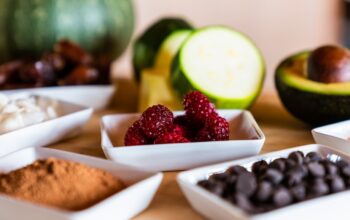Every athlete dreams of performing at their best, whether on the field, track, or court. While training, discipline, and mindset play vital roles, nutrition is the true engine behind peak performance. The right food choices give athletes the energy, strength, and recovery they need to perform consistently. In simple terms, nutrition is not just fuel; it’s power.
The Importance of Nutrition for Athletes
Athletes push their bodies to the limit. To handle intense training and competition, they need the right balance of nutrients. Food acts as fuel, and just like a car cannot run on an empty tank, an athlete cannot perform without proper nourishment.
A balanced diet provides carbohydrates for energy, protein for muscle repair, healthy fats for endurance, and vitamins and minerals for overall health. Without these, the body becomes tired, muscles weaken, and performance drops. That’s why athletes follow personalized meal plans to meet their specific physical demands. You can learn more about how fitness and health connect at Urbansplatter.
Carbohydrates: The Energy Source
Carbohydrates are the body’s main source of energy, especially during physical activity. When athletes train or compete, their muscles rely on stored glycogen, a form of carbohydrate stored in the body, for fuel.
Eating foods like rice, oats, fruits, and pasta helps keep glycogen levels high. Without enough carbs, athletes may feel weak or exhausted before finishing a session. Timing also matters — eating a light carbohydrate-rich meal a few hours before exercise helps maintain stamina and focus throughout training or competition.
Protein: The Muscle Builder
After exercise, the body needs to repair and rebuild muscles. That’s where protein comes in. Proteins help strengthen tissues, build new muscle fibres, and speed up recovery. Lean meats, eggs, fish, beans, and dairy are all excellent protein sources.
Athletes often include small portions of protein throughout the day rather than in one big meal. A post-workout snack with both protein and carbohydrates, like yogurt with fruit or a protein shake, helps muscles recover faster and prepares the body for the next workout.
Healthy Fats: Long-Lasting Energy
While fats are often seen as unhealthy, the right kinds are essential for athletic success. Healthy fats, like those found in avocados, nuts, seeds, and olive oil, provide long-lasting energy. They also help absorb vitamins and maintain healthy joints.
Endurance athletes, such as marathon runners or cyclists, depend on fats for sustained energy during long events. Unlike carbohydrates, fats burn slowly and keep the body energized over time.
Hydration: The Unsung Hero
Water might seem simple, but it’s one of the most important parts of nutrition. Even mild dehydration can lead to tiredness, cramps, and poor concentration. During intense physical activity, the body loses water through sweat, along with essential minerals like sodium and potassium.
Athletes must drink water before, during, and after exercise to stay hydrated. Sports drinks with electrolytes can also help replace lost minerals. Proper hydration keeps the body cool, maintains blood flow, and prevents fatigue.
The Role of Vitamins and Minerals
Vitamins and minerals support energy production, bone health, and muscle function. Iron, for instance, helps transport oxygen in the blood, while calcium and vitamin D strengthen bones. Magnesium and potassium help prevent cramps and maintain nerve function.
Athletes who eat a variety of fruits, vegetables, and whole grains naturally get most of these nutrients. However, some may need supplements if they have higher physical demands. Consulting a nutritionist ensures that they meet their unique dietary needs safely.
Recovery and Meal Timing
Nutrition doesn’t end when the workout is over — recovery is equally important. After training, muscles need to refuel. Athletes usually eat within 30 minutes to one hour after exercise to restore energy and start muscle repair.
Meals combining carbohydrates and proteins are ideal during this window. Smoothies, whole-grain sandwiches, or chicken with rice are all effective recovery meals. Proper recovery nutrition ensures athletes stay strong, avoid injuries, and maintain consistent performance.
Sports Nutrition Planning
Every sport requires a slightly different nutrition plan. A weightlifter, for instance, needs more protein for muscle building, while a long-distance runner focuses more on carbohydrates for endurance. Understanding these differences helps athletes perform better and stay in peak condition.
Even amateur athletes can benefit from learning basic nutrition principles. Eating the right food before and after workouts improves results and prevents burnout. For more insights into fitness and sports performance, explore this sports section.
The Mind-Body Connection
Good nutrition not only fuels the body but also sharpens the mind. When the brain gets the nutrients it needs, focus and decision-making improve. Athletes who eat well often experience better concentration and confidence, key ingredients for success in competitive sports.
Conclusion
Nutrition is the backbone of athletic performance. Training builds strength, but food provides the fuel that powers it. The right combination of carbohydrates, proteins, fats, vitamins, and hydration keeps athletes energized, focused, and ready to perform at their best.
From pre-game meals to recovery snacks, every bite matters. By understanding their bodies and fueling them wisely, athletes unlock their true potential. In the end, success in sports is not just about hard work; it’s about feeding that hard work with the right fuel.



